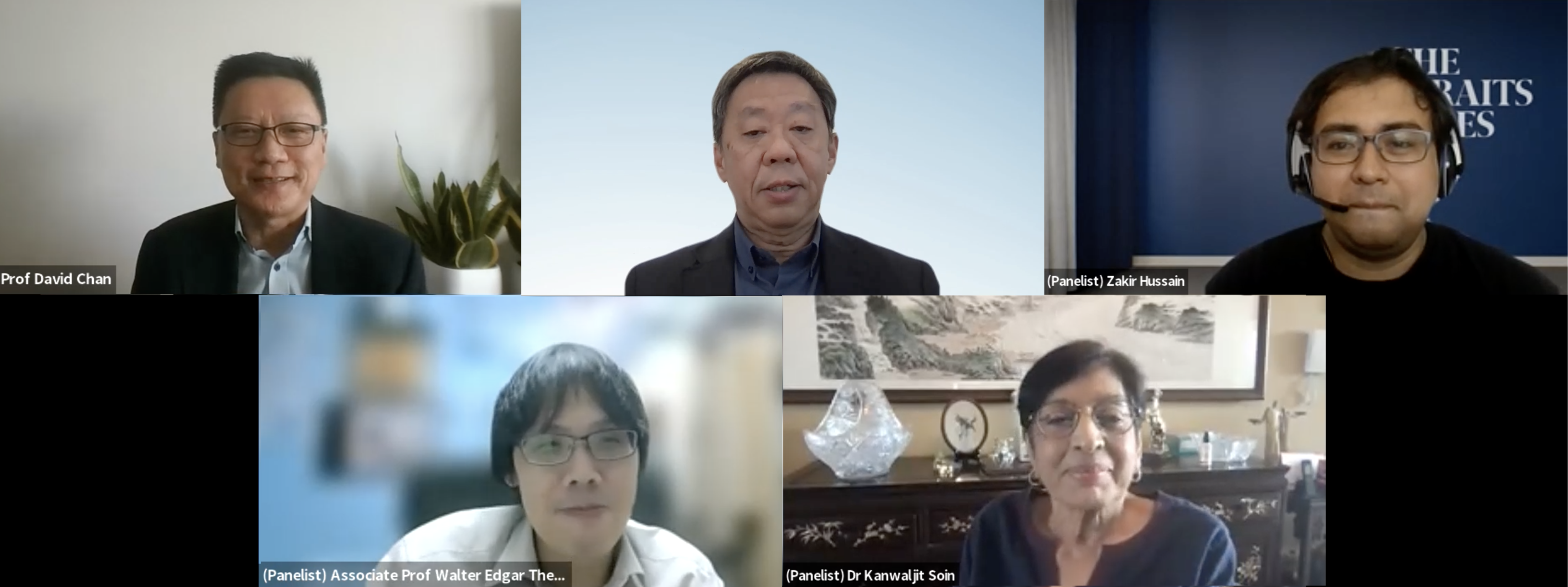
“We will all be better off if we get the psychology of disagreements and debate right, and not just the politics of it”, said Professor David Chan, at the SMU Behavioural Sciences Initiative Conference themed “Dealing with Disagreements” on 1 December 2021. Speaking to participants from academia and the public, private, and people sectors, he noted that different stakeholders such as the government, academics, journalists, and civil society advocates all have important roles in society, and therefore need to develop mutual respect and trust. Everyone can deal with disagreements better if they learn to focus on the three Ts of “truth, tact, and treatment”.
Whoever we are and whatever views we hold, there will be situations where we have to make critical comments or respond to such comments. Such episodes of disagreement or debate tend to evoke strong emotions and intense experiences that affect the way we think, feel, and act. It is important to learn to address differences in a civil, healthy manner and move forward cohesively, even if disagreements continue to exist, said Prof Chan. He added that this is essential not just for parties in argument, but also many others observing and making conclusions.
The Science and Art of Disagreeing
Prof Chan was translating the science of disagreeing into practice for policy and public discourse and action during his keynote speech, following the opening keynote speech by Singapore’s Ambassador-at-Large Professor Tommy Koh who shared his approach to dealing with disagreements.
Noting that Singapore can do better in dealing with disagreements, Prof Koh had in his speech called on policymakers and the public to remember five points when dealing with disagreements. They are recognising that disagreements are natural and that it is part of life, being humble and listen carefully to your opponents because you may learn something from them, winning the argument and not losing a friend, not demonising your opponent, and not taking disagreement personally.
Expanding on Prof Koh’s five points, Prof Chan said it would be most unfortunate if differences, debates, and disagreements produce only negatives and no positives. “The worst thing that can happen is if we let ourselves be driven by cynicism, conspiratory beliefs, confirmatory biases, and counter-productive behaviours. Then a negative spiral of self-defeating attitudes and actions will result in our society”, he added.
Applying the scientific research and his work in areas such as healthy scepticism, perspective-taking, and taking feedback seriously, Prof Chan urged participants to engage in debate and make critical comments in an effective manner that will allow one’s views to be received and heard. He explained how it is possible to deal with disagreements effectively to prevent negativity, produce positivity, and co-create solutions. Elaborating his “Five Cs” framework, Prof Chan said it is most important to develop a socio-political climate of support for dealing with disagreements so that people have the competence to handle differences and debates, people with good character will speak up, and do so both courageously and constructively.
The video recording of the Keynote session, which includes the keynote speeches by Prof Koh and Prof Chan, followed by a keynote panel discussion moderated by Mr Han Fook Kwang, is available here.
Specific issues on dealing with disagreements constructively were also discussed at the conference’s closing panel discussion moderated by Prof Chan, involving panellists Yale-NUS President Professor Tan Tai Yong, The Straits Times Political & Singapore Editor Mr Zakir Hussain, private practice surgeon Dr Kanwaljit Soin, and SUSS Associate Professor Walter Theseira. Prof Tan spoke on the importance of developing critical thinking and a culture of open and respectful discussion in the educational context. Mr Zakir Hussain shared on the judgements that media editors and reporters have to make when dealing with differences in views involving issues that are complex, uncertain, and sensitive. Dr Soin shared her experiences with various approaches to disagreements between the government and civil society advocates in Singapore. Assoc Prof Theseira discussed the issues of facts, rationality, and persuasion in public policy debates and policymaking.
In his conference closing remarks, Prof Chan shared a practical approach to dealing with agreements amid challenges, which is to refrain, reflect, and resolve. He noted that adopting these three Rs could bring efficacy, optimism, hope, and resilience, and help us make a positive difference to ourselves, others, and our society.
The video recording of the closing panel discussion is available here.
You can also read more about the BSI Conference in Lianhe Zaobao.
